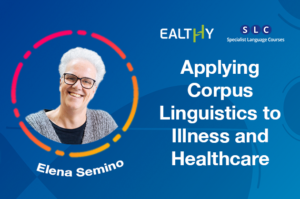
SIFE: Is Signing Off Without a Language Test Really Working for NHS Nurses?
Back to Menu ↩ When the NMC introduced the SIFE pathway in 2023, it was intended to solve a real and pressing problem: internationally educated

The speaking test consists of three sections. Together they take about 12-15 minutes. There will be you and an examiner, they may be either male or female and are native or near-native speakers of English. They may be from anywhere in the world, though the majority are British or Australian speakers of English.
The whole test is recorded for quality control purposes and possible disputes about the level awarded. The marking criteria are applied consistently from centre to centre and all examiners have to pass regular tests to ensure marking is fair. Appeals against marking decisions are rarely successful and cost more money; better to put the near miss down to experience and apply for another test.
The first section lasts for about 4 minutes and features interview-type questions about yourself and your family. You will know the answers to these questions and they shouldn’t give you any difficulty.
However, be aware of length of answer. For example, the following question could be answered in many ways: “Tell me about the house or apartment you live in?”
Answer: 1) “In a house.” or, 2) “Well, at the moment I’m living in a house with my sister and two friends from university. It’s crowded, but I like everyone and we have fun together. We eat meals together and we like the same movies. Because of that we get on really well and there aren’t many arguments.”
Obviously, answer 2 is better, it is developed and is quite sophisticated with regard to grammar and cause and effect links. Also, at just over 50 words, it’s about right for length too. It is just about on topic throughout but is beginning to drift as the information about meals and arguments is not directly linked to the house. Much longer and the candidate might begin to drift off topic.
Remember too, that the examiner wants you to demonstrate as many different grammar structures as you can and this will be easier to do if you give answers of around 50 words maximum. He/she has plenty of questions to ask so get the balance right.
Also, after the initial introductions and checking of names and establishing what the examiner should call you, there will be a few ‘settling’ questions these are not assessed and are designed only to allow the candidate time to get used to the examiner’s voice, accent, pitch etc. You will get a clear signal that the test has really begun with a phrase like: “I’d like to talk about …” or “let’s move on to talk about…” So, don’t use up all your best phrases on the first couple of questions.
It is also worth pointing out that the examiner is not assessing your opinions, morals, decisions, etc. In fact, the examiner can only assess how you say something and is not really interested in what you say.
This section takes about 3½ minutes and is designed to show how you can describe some kind of situation either ongoing or past or perhaps a wish or plan for the future. You will be given a card with a topic and some questions using ‘wh…’ words to prompt you, some paper and a pen or pencil.
You should make notes on the paper provided which remind you what you were going to say in answer to each wh… word. The examiner will tell you that you should talk for between one and two minutes, that you can take notes, and that you have one minute to prepare.
Make good use of that minute, write only short notes containing key words to help you remember against each section. This is then your plan. The examiner will tell you that you now have two minutes to talk about the topic on the card and that he/she will let you know when to stop.

You will need to say about 250 words to get to band seven or more. This is about the length of an essay, so the planning is important to help you remember. It is a good idea to base the response on true events or your own plans for the future. Stories and things which you don’t really know about are much harder to keep going for enough time. Ideally you should be rounding off when the examiner indicates that time is up.
It’s important to keep on topic and not to repeat yourself. To get higher grades you will need to demonstrate a wide range of grammatical structures and vocabulary. Try never to repeat a word if you know another that means the same thing. For example: If talking about ‘soldiers’ say ‘troops’, ‘ground forces’, ‘infantry’, ‘armed personnel’.
The next couple of questions are directly related to the topic you have just talked about. For example the above topic about a specific holiday may be followed with: “Do you plan to visit that place again?” Then by: “Where do you plan on going for your next holiday?”
Don’t expect the examiner to ‘engage’ with you during your answer to section 2. They are told not to interact with the candidate, they should not even smile or nod, they are not being rude, just following rules.
The final section lasts for about 5 minutes. This is again a two way conversation, however, unlike in section 1 you may not ever have thought about the subjects, scenarios and timeframes of these questions. They would usually be challenging questions for native speakers too. If you’ve performed well so far in the test this is where the examiner will finally decide if your English is good enough for a higher band score.
The first topic, at least, will naturally follow on from the section two topic. If following the above topic the first set of questions would be related to travel and holidays in some way. The first question would usually be a background type one, to set the context and topic. Followed by a more focussed, more targeted question. Finally one or two questions which require some thinking to answer.
Sometimes you will be required to compare and contrast a given situation with how it was in the past. Another question form asks you to speculate on how a given situation might develop in the future.
If you don’t understand a question in this section you can ask for clarification if you demonstrate enough understanding of the question. For instance, if you said “Can you repeat that please?” the examiner will ask EXACTLY the same question with no changes. However if you said “Do you mean holidays in my country or worldwide?” the examiner will let you know what they expect. A request from you to fully explain the meaning or context of a question will not be answered. For example: “What does that mean?” would not be explained.
Here is an example set:
Do you think it’s important for people to take holidays?
How long do you think is the ideal length for a holiday?
Do you think holiday habits have changed over the last 50 years? (How?)
What factors might limit the places we travel to in order to take holidays in the future?
As mentioned, these kinds of questions are challenging. Although most people who are taking an IELTS test will have experience of talking holidays, perhaps you have never given the subject of how holidays have changed over 50 years or how they might change again in future and, more importantly for your answer, why or how?
Because of this level of complexity, you are not really expected to give a faultless answer. It is acceptable to use words and phrases like “um” or “erm” “Oh! I would have thought…”, etc. You may even begin a sentence and realise that you are going in the wrong direction with it and stop before beginning a new, more appropriate sentence. Do not worry, it is a natural part of English and a feature of native speaker English. The examiner would look more favourably on this type of English than to be met with huge chunks of silence. If you are really stuck, something like the following is better than nothing. “Oh, I haven’t really got any idea about that, it’s something I just know nothing about and can’t decide what direction it might take.” At least there is some sophisticated grammar to assess.
Another strategy is to talk about another aspect of a topic. For example if asked about where holidays might target as a destination you might say the following:
“Well, I don’t know any specific places, but people these days are more interested in adventure holidays than simply relaxing on a beach. Maybe a new destination will be discovered which could be developed for adventure holidays. I’m not sure where that might be though.”
So, although the question was not directly answered, it was close enough to be considered on topic.
Just bear in mind that the examiner wants you to do well and is giving you opportunities to display how much vocabulary, organisational skill, good pronunciation, and grammar you can use. The answers are not the test, but how you deliver those answers.
Philippine English in particular has (generally) poor and inaccurate use of prepositions. Try to revise these from a good source. Here are some common areas to begin with: on the bus, in a taxi, on a train, in a shop/store, at the cinema (outside) in the cinema (watching the film) at 3:00 pm on Friday. Listen to, talk about, interested in, and divided between. On the beach, in the water, on holiday, in a hotel.
The night before, relax, it’s too late to revise anyway. Get some quality sleep, and…
We are IELTS preparation specialists. Our uniquely effective course design and delivery offers an unparalleled range of Medical- and exam-focused courses and tests.
Our courses will enable you to achieve a high score in the IELTS Academic English test.
Specialist Language Courses (SLC) are experts in both IELTS and OET preparation. We work with thousands of candidates every year and specialise in working with healthcare professionals. Clients include many NHS Trusts and private healthcare groups in the UK.
Call or email SLC to talk about your OET and IELTS options.
Get updates and get the latest materials on Medical English, OET and IELTS

Back to Menu ↩ When the NMC introduced the SIFE pathway in 2023, it was intended to solve a real and pressing problem: internationally educated

If you’re at all interested in how language works in healthcare, you’d be nuts to miss the upcoming webinar from SLC and EALTHY.
🌈 Celebrate Holiwith 10% off on all 1-month and 3-month subscription courses!✨
